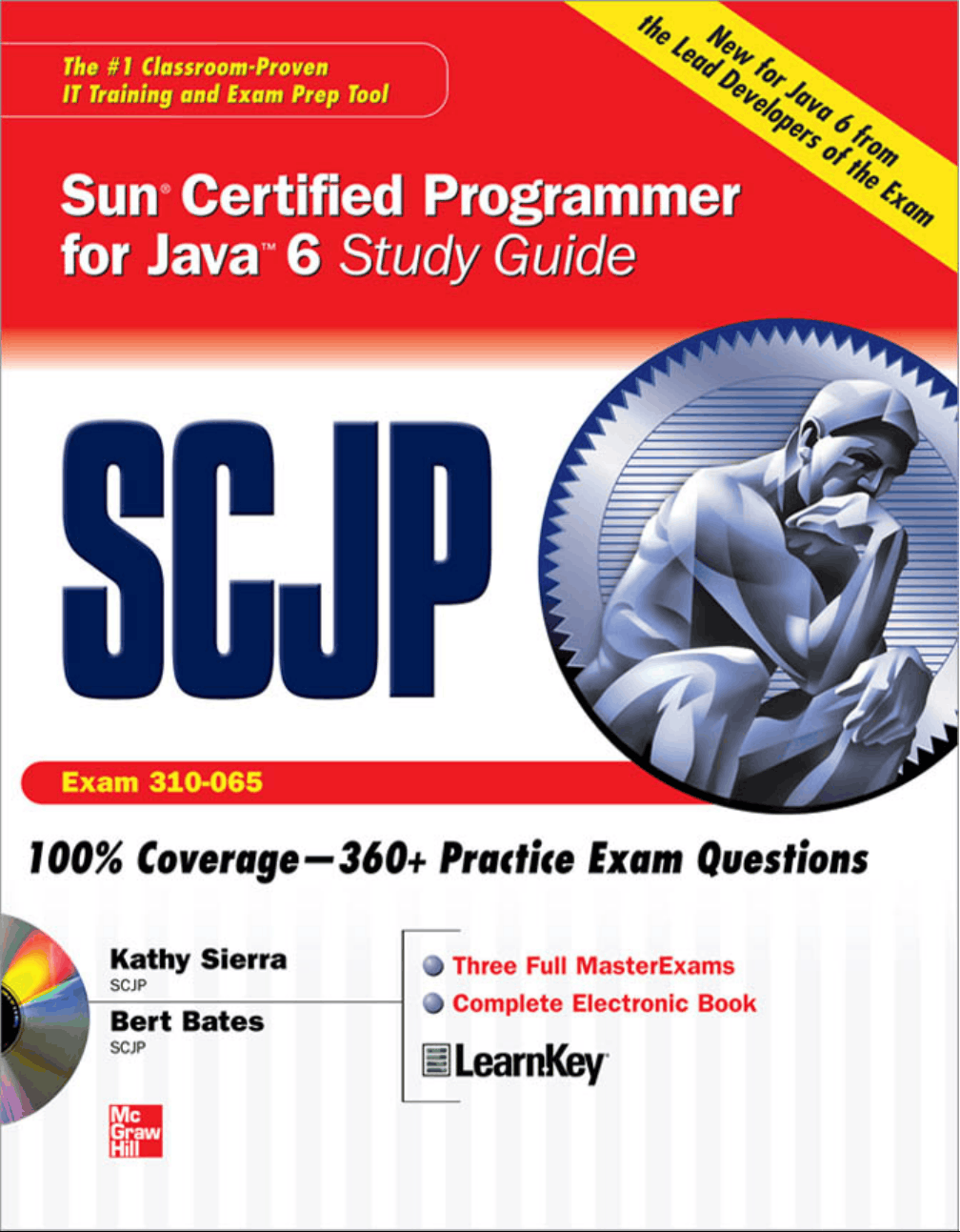

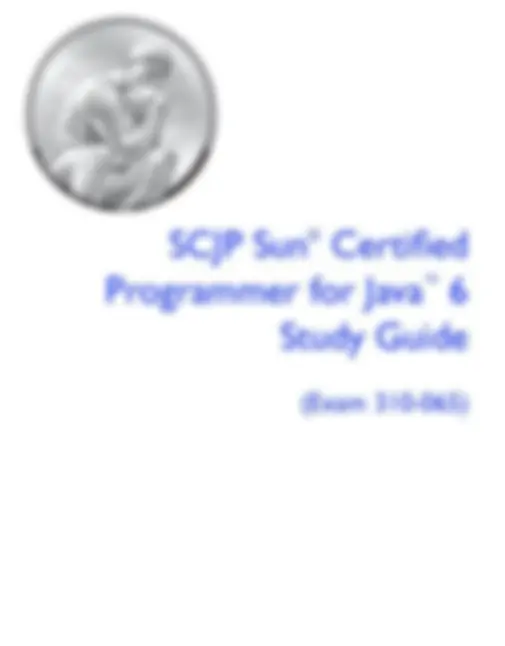



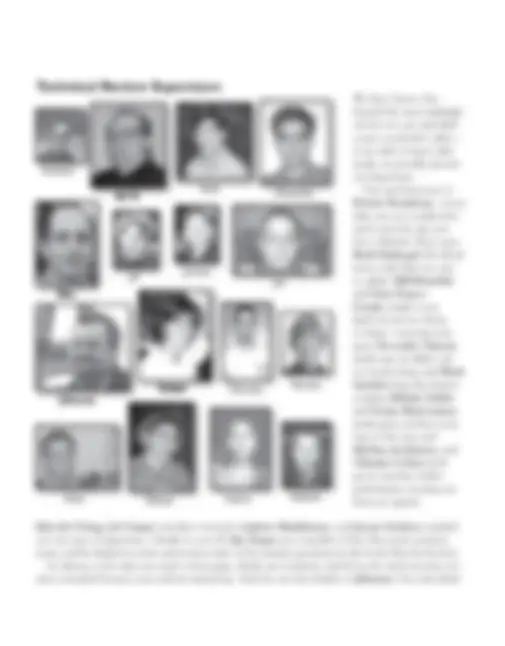


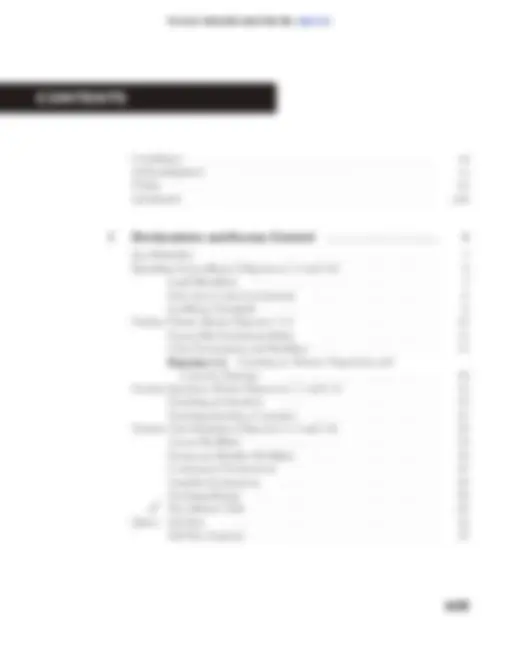


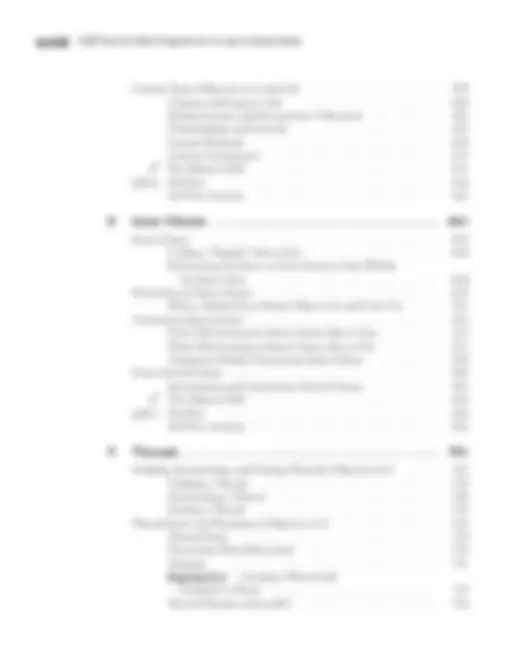
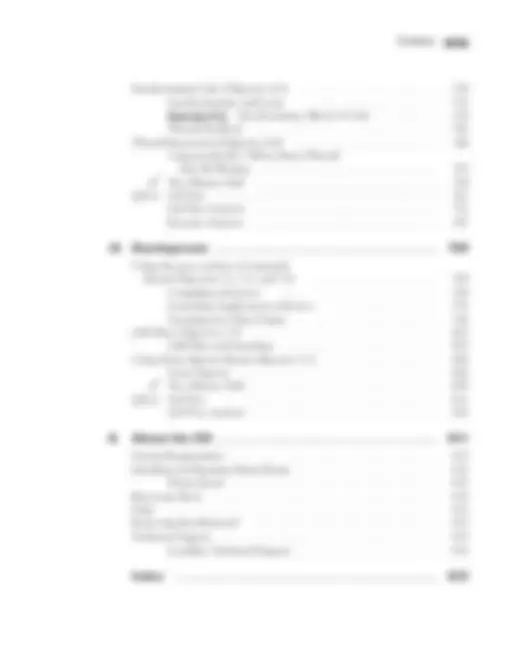

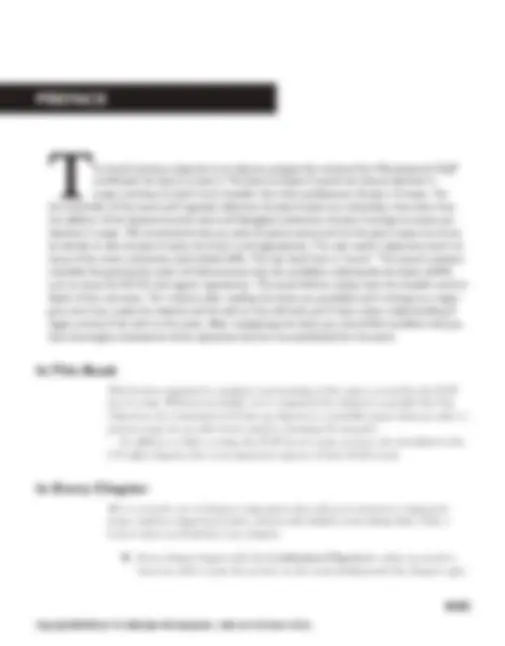





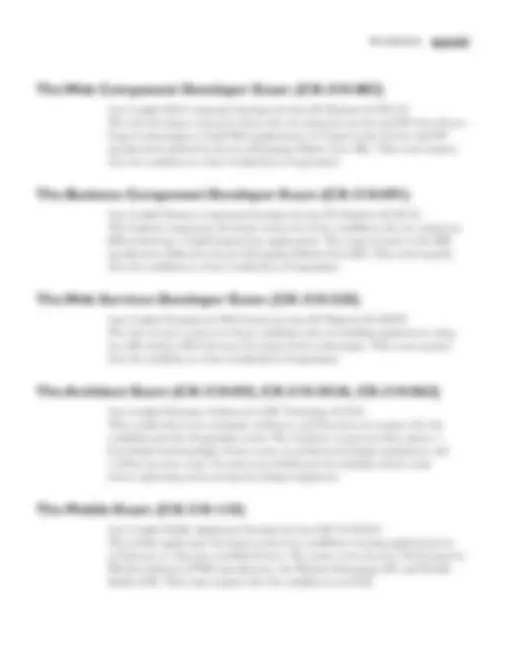

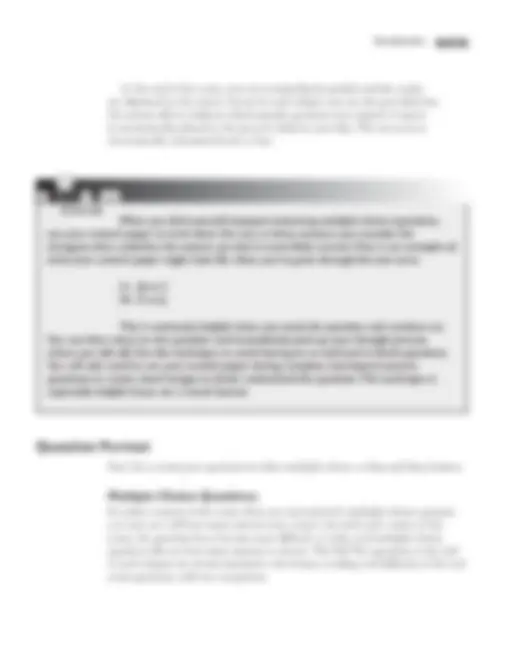

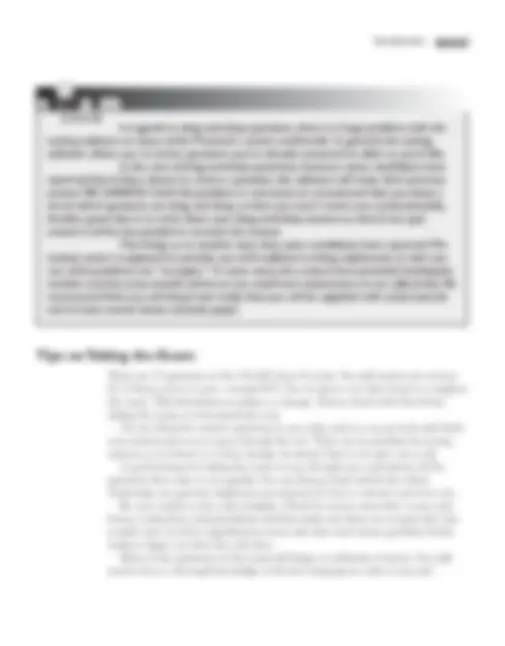





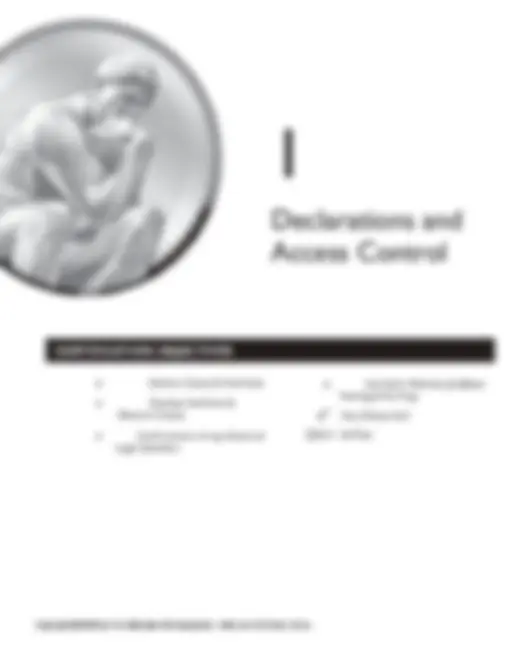



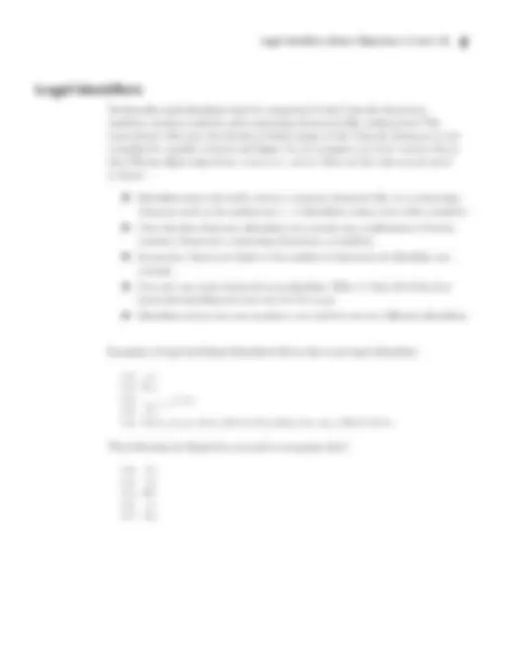




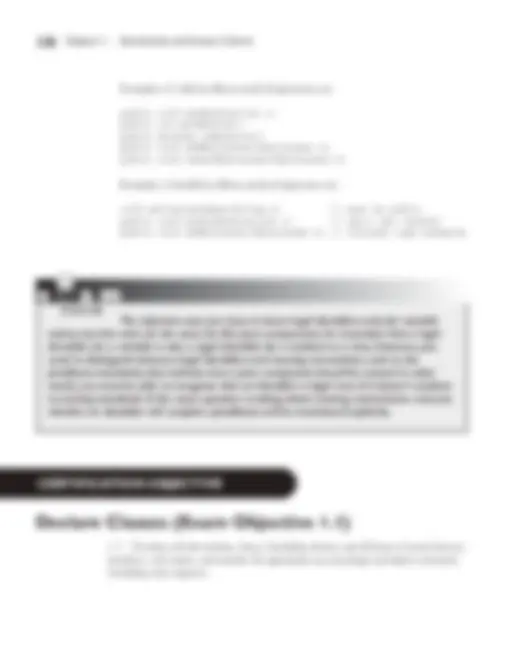












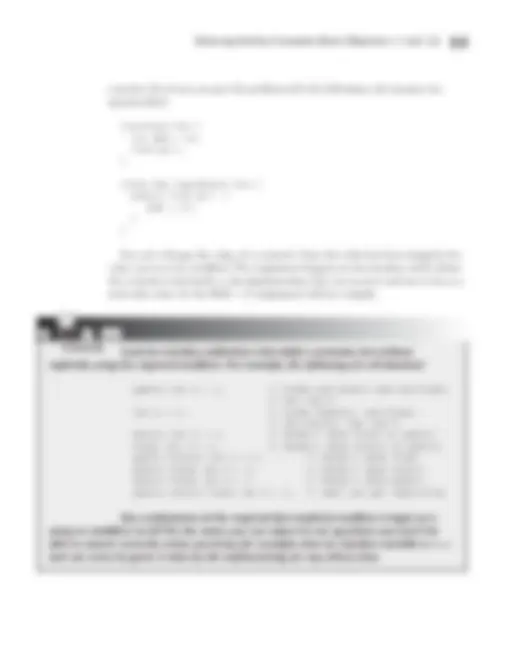
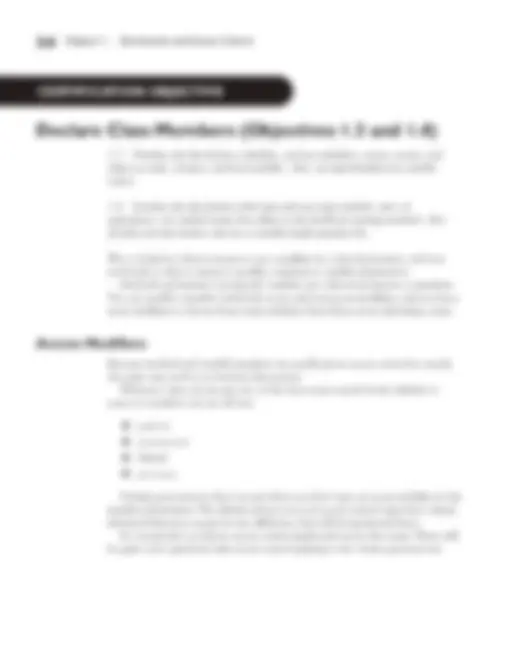


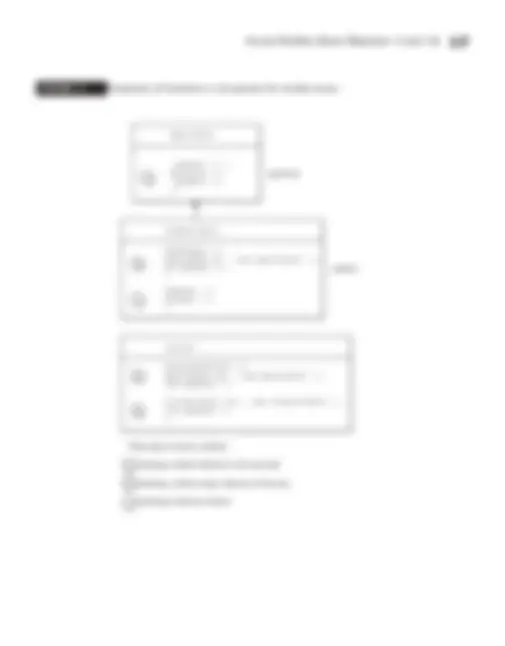




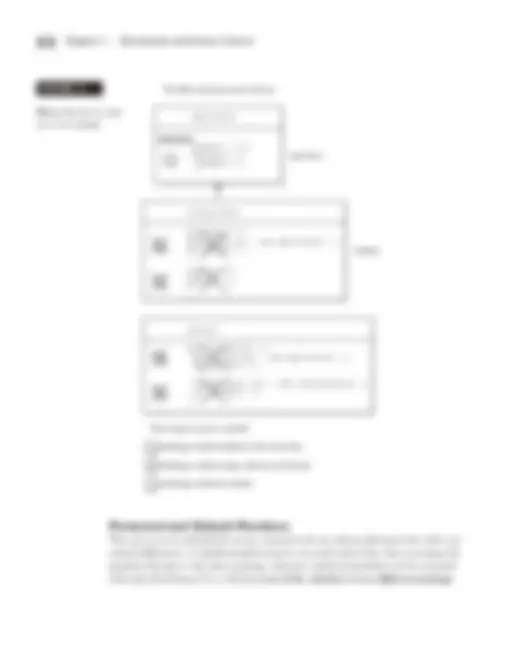




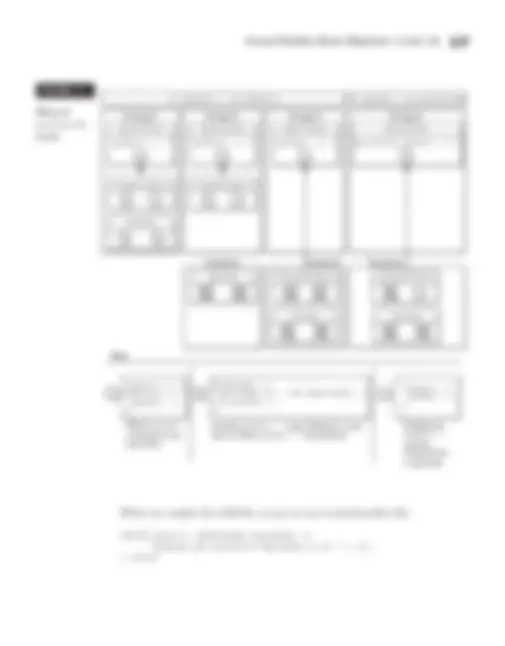

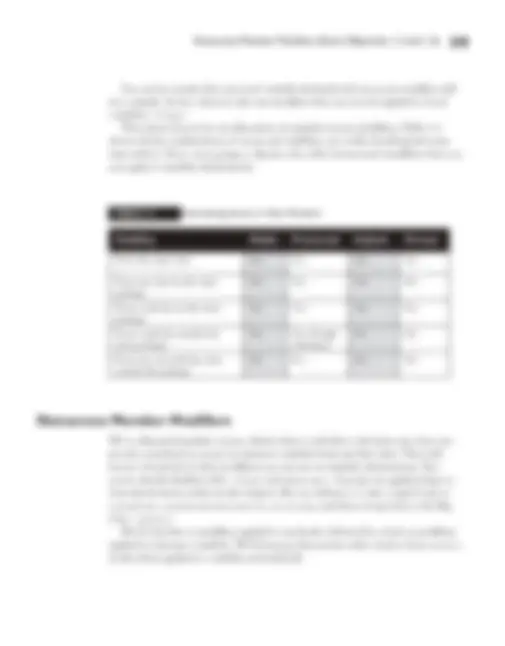




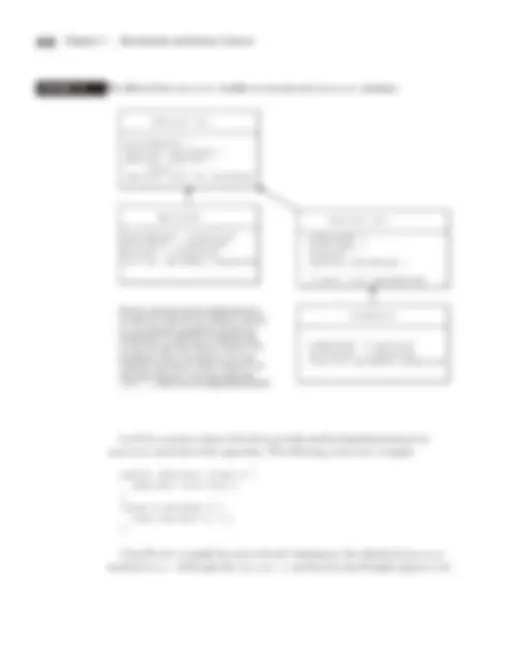





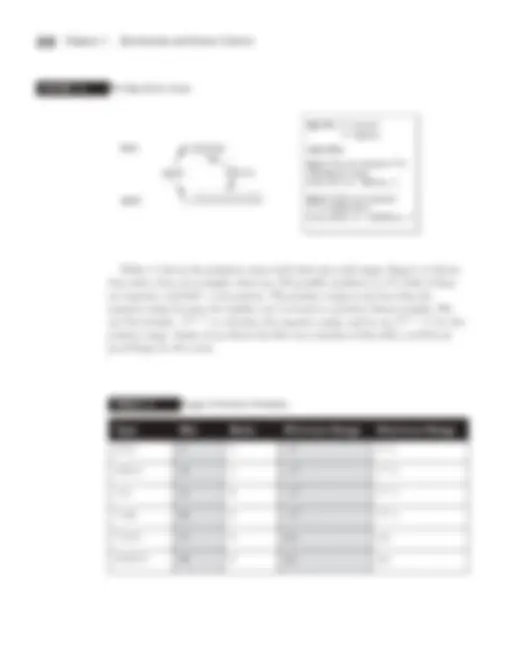


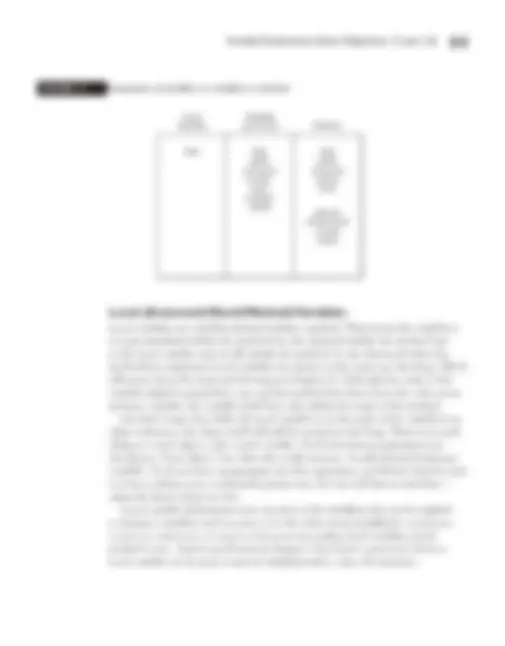


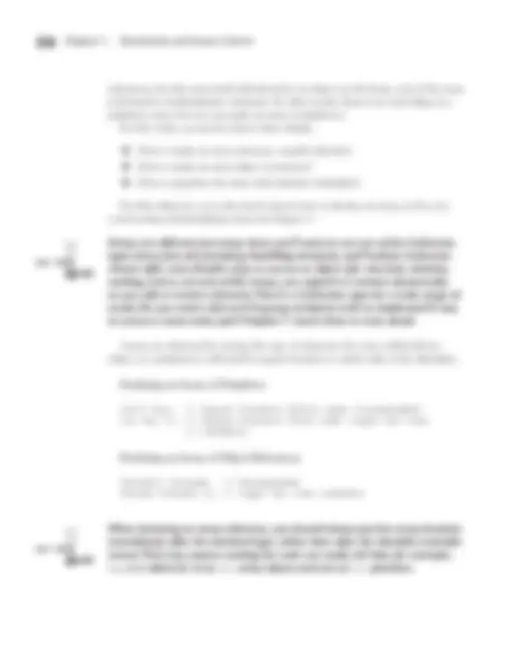


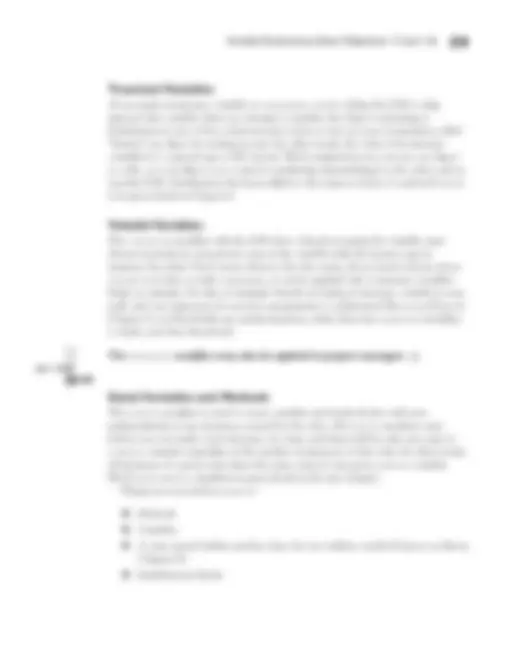





Estude fácil! Tem muito documento disponível na Docsity

Ganhe pontos ajudando outros esrudantes ou compre um plano Premium


Prepare-se para as provas
Estude fácil! Tem muito documento disponível na Docsity
Prepare-se para as provas com trabalhos de outros alunos como você, aqui na Docsity
Os melhores documentos à venda: Trabalhos de alunos formados
Prepare-se com as videoaulas e exercícios resolvidos criados a partir da grade da sua Universidade
Responda perguntas de provas passadas e avalie sua preparação.

Ganhe pontos para baixar
Ganhe pontos ajudando outros esrudantes ou compre um plano Premium
Comunidade
Peça ajuda à comunidade e tire suas dúvidas relacionadas ao estudo
Descubra as melhores universidades em seu país de acordo com os usuários da Docsity
Guias grátis
Baixe gratuitamente nossos guias de estudo, métodos para diminuir a ansiedade, dicas de TCC preparadas pelos professores da Docsity
Para estudo de certificação JAVA
Tipologia: Notas de estudo
1 / 890

Esta página não é visível na pré-visualização
Não perca as partes importantes!





























































































Praise for the Sun Certified Programmer & Developer for Java 2 Study Guide
"Kathy Sierra is one of the few people in the world who can make complicated things seem damn simple. And as if that isn't enough, she can make boring things seem interesting. I always look forward to reading whatever Kathy writes—she's one of my favorite authors." —Paul Wheaton, Trail Boss JavaRanch.com
"Who better to write a Java study guide than Kathy Sierra, the reigning queen of Java instruction? Kathy Sierra has done it again—here is a study guide that almost guarantees you a certification!" —James Cubeta, Systems Engineer, SGI
"The thing I appreciate most about Kathy is her quest to make us all remember that we are teaching people and not just lecturing about Java. Her passion and desire for the highest quality education that meets the needs of the individual student is positively unparalleled at SunEd. Undoubtedly there are hundreds of students who have benefited from taking Kathy's classes." —Victor Peters, founder Next Step Education & Software Sun Certified Java Instructor
"I want to thank Kathy for the EXCELLENT Study Guide. The book is well written, every concept is clearly explained using a real life example, and the book states what you specifically need to know for the exam. The way it's written, you feel that you're in a classroom and someone is actually teaching you the difficult concepts, but not in a dry, formal manner. The questions at the end of the chapters are also REALLY good, and I am sure they will help candidates pass the test. Watch out for this Wickedly Smart book." —Alfred Raouf, Web Solution Developer
"The Sun Certification exam was certainly no walk in the park, but Kathy's material allowed me to not only pass the exam, but Ace it!" —Mary Whetsel, Sr. Technology Specialist, Application Strategy and Integration, The St. Paul Companies
"Bert has an uncanny and proven ability to synthesize complexity into simplicity offering a guided tour into learning what's needed for the certification exam." —Thomas Bender, President, Gold Hill Software Design, Inc.
Copyright © 2008 by The McGraw-Hill Companies. All rights reserved. Manufactured in the United States of America. Except as permitted under the United States Copyright Act of 1976, no part of this publication may be reproduced or distributed in any form or by any means, or stored in a database or retrieval system, without the prior written permission of the publisher.
0-07-159107-
The material in this eBook also appears in the print version of this title: 0-07-159106-0.
All trademarks are trademarks of their respective owners. Rather than put a trademark symbol after every occurrence of a trademarked name, we use names in an editorial fashion only, and to the benefit of the trademark owner, with no intention of infringement of the trademark. Where such designations appear in this book, they have been printed with initial caps.
McGraw-Hill eBooks are available at special quantity discounts to use as premiums and sales promotions, or for use in corporate training programs. For more information, please contact George Hoare, Special Sales, at george_hoare@mcgraw-hill.com or (212) 904-4069.
TERMS OF USE
This is a copyrighted work and The McGraw-Hill Companies, Inc. (“McGraw-Hill”) and its licensors reserve all rights in and to the work. Use of this work is subject to these terms. Except as permitted under the Copyright Act of 1976 and the right to store and retrieve one copy of the work, you may not decompile, disassemble, reverse engineer, reproduce, modify, create derivative works based upon, transmit, distribute, disseminate, sell, publish or sublicense the work or any part of it without McGraw-Hill’s prior consent. You may use the work for your own noncommercial and personal use; any other use of the work is strictly prohibited. Your right to use the work may be terminated if you fail to comply with these terms.
THE WORK IS PROVIDED “AS IS.” McGRAW-HILL AND ITS LICENSORS MAKE NO GUARANTEES OR WARRANTIES AS TO THE ACCURACY, ADEQUACY OR COMPLETENESS OF OR RESULTS TO BE OBTAINED FROM USING THE WORK, INCLUDING ANY INFORMATION THAT CAN BE ACCESSED THROUGH THE WORK VIA HYPERLINK OR OTHERWISE, AND EXPRESSLY DISCLAIM ANY WARRANTY, EXPRESS OR IMPLIED, INCLUDING BUT NOT LIMITED TO IMPLIED WARRANTIES OF MERCHANTABILITY OR FITNESS FOR A PARTICULAR PURPOSE. McGraw-Hill and its licensors do not warrant or guarantee that the functions contained in the work will meet your requirements or that its operation will be uninterrupted or error free. Neither McGraw-Hill nor its licensors shall be liable to you or anyone else for any inaccuracy, error or omission, regardless of cause, in the work or for any damages resulting therefrom. McGraw-Hill has no responsibility for the content of any information accessed through the work. Under no circumstances shall McGraw-Hill and/or its licensors be liable for any indirect, incidental, special, punitive, consequential or similar damages that result from the use of or inability to use the work, even if any of them has been advised of the possibility of such damages. This limitation of liability shall apply to any claim or cause whatsoever whether such claim or cause arises in contract, tort or otherwise.
DOI: 10.1036/
Technical Review Superstars
Andrew
Bill M.
Burk (^) Devender
Gian
Jim Jef Jeroen
Kristin Marcelo^ Marilyn Johannes
Mark Mikalai Seema^ Valentin
We don't know who burned the most midnight oil, but we can (and did) count everybody's edits— so in order of most edits made, we proudly present our Superstars. Our top honors go to Kristin Stromberg —every time you see a semicolon used correctly, tip your hat to Kristin. Next up is Burk Hufnagel who fixed more code than we care to admit. Bill Mietelski and Gian Franco Casula caught every kind of error we threw at them—awesome job, guys! Devender Thareja made sure we didn't use too much slang, and Mark Spritzler kept the humor coming. Mikalai Zaikin and Seema Manivannan made great catches every step of the way, and Marilyn de Queiroz and Valentin Crettaz both put in another stellar performance (saving our butts yet again).
Marcelo Ortega , Jef Cumps (another veteran), Andrew Monkhouse , and Jeroen Sterken rounded out our crew of superstars—thanks to you all. Jim Yingst was a member of the Sun exam creation team, and he helped us write and review some of the twistier questions in the book (bwa-ha-ha-ha). As always, every time you read a clean page, thank our reviewers, and if you do catch an error, it's most certainly because your authors messed up. And oh, one last thanks to Johannes. You rule dude!
The Java 6 Elite Review Team Since the upgrade to the Java 6 exam was a like a small, surgical strike we decided that the technical review team for this update to the book needed to be similarly fashioned. To that end we hand- picked an elite crew of JavaRanch's top gurus to perform the review for the Java 6 exam.
Marc Peabody gets special kudos for helping us out on a double header! In addition to helping us with Sun's new SCWCD exam, Marc pitched in with a great set of edits for this book—you saved our bacon this winter Marc! (BTW, we didn't learn until late in the game that Marc, Bryan Basham, and Bert all share a passion for ultimate Frisbee!) Like several of our reviewers, not only does Fred Rosenberger volunteer copious amounts of his time moderating at JavaRanch, he also found time to help us out with this book. Stacey and Olivia, you have our thanks for loaning us Fred for a while. Marc Weber moderates at some of JavaRanch's busiest forums. Marc knows his stuff, and uncovered some really sneaky problems that were buried in the book. While we really appreciate Marc's help, we need to warn you all to watch out—he's got a Phaser! Finally, we send our thanks to Christophe Verre —if we can find him. It appears that Christophe performs his JavaRanch moderation duties from various locations around the globe, including France, Wales, and most recently Tokyo. On more than one occasion Christophe protected us from our own lack of organization. Thanks for your patience, Christophe! It's important to know that these guys all donated their reviewer honorariums to JavaRanch! The JavaRanch community is in your debt.
Marc W.
Marc P.
Fred
Christophe
Mikalai
Our endless gratitude goes to Mikalai Zaikin. Mikalai played a huge role in the Java 5 book, and he returned to help us out again for this Java 6 edition. We need to thank Volha, Anastasia, and Daria for letting us borrow Mikalai. His comments and edits helped us make huge improvements to the book. Thanks, Mikalai!